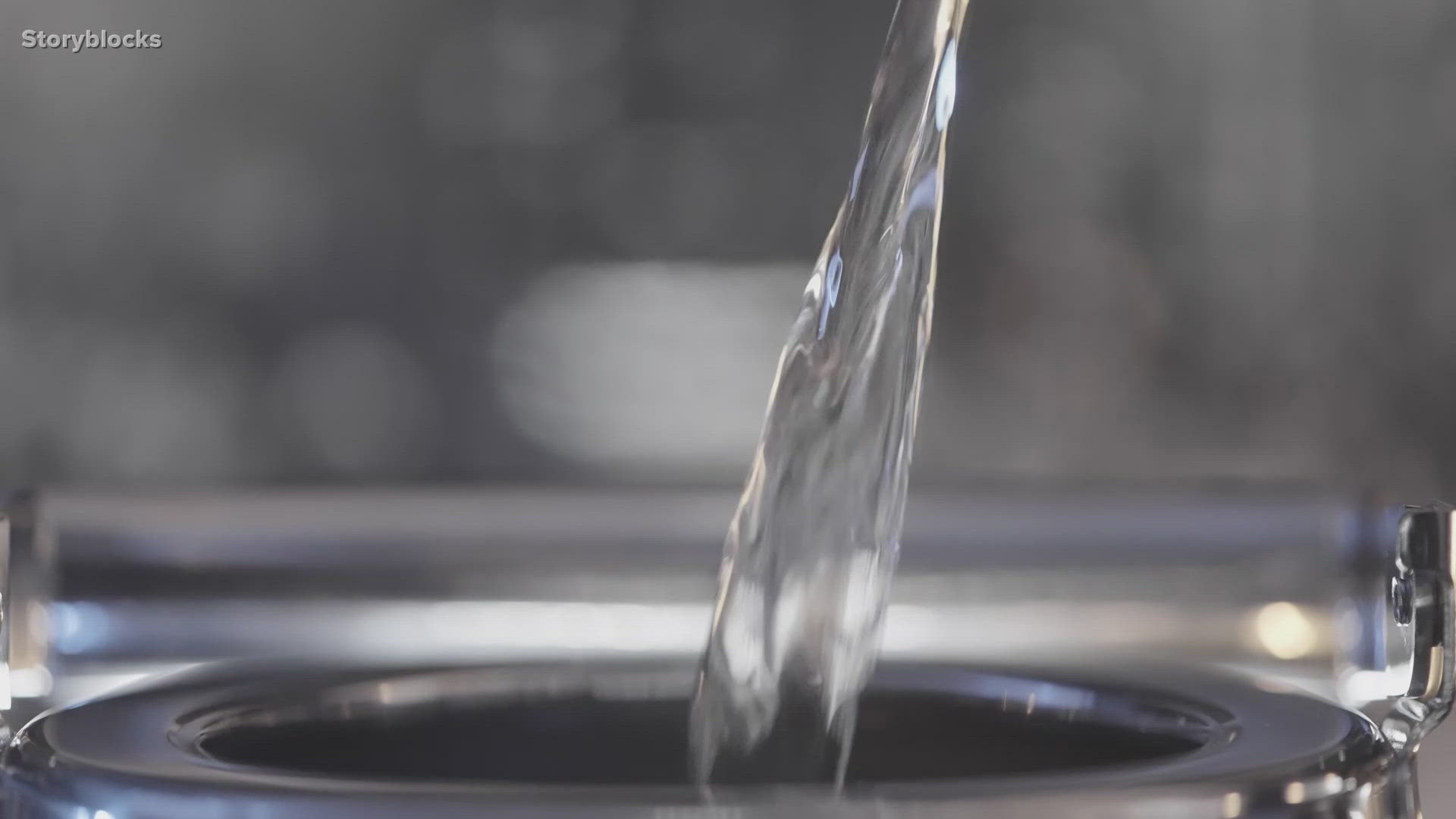TEXAS, USA — Questions about water quality from 6 News viewers are lingering. People are wondering about using water filters while under a boil water notice.
"We always watch that KCEN and the Verify," viewer Russell Trobough said. "We got a water softener, and then a filtration system underneath the sink that was with the house when we bought it. I was just wondering, do we still need to boil our water if we have, you know, a water softener and a filtration system?"
This all comes after the Texas Commission on Environmental Quality issued a boil water notice for the Kempner Water Supply Corporation on Tuesday, June 25.
THE QUESTION
Do you still need to boil water if you have a filter system?
THE SOURCES
The Centers for Disease Control and Prevention (CDC), Texas Commission on Environmental Quality (TCEQ) and Dr. Amy Mersiovsky, registered nurse and nursing director for Texas A&M University-Central Texas.
THE ANSWER
Yes, if you are under a boil water notice, you'll need to boil water even if you have a filter system.
WHAT WE FOUND
The TCEQ says when a public water system (PWS) issues a boil water notice (BWN) to their customers, it indicates the water in the distribution system may be unsafe for consumption or may pose an acute health risk.
A BWN is intended to reduce the possibility of waterborne illnesses resulting from consuming water which may contain harmful microbes.
It is important that customers of any water system that has issued a BWN do not drink the water without first boiling it as directed by the water provider.
"Anyone could get gastrointestinal infections from drinking contaminated water," Mersiovsky added.
During a boil water notice, customers should boil tap water even if it is filtered.
Most kitchen and other household water filters are typically designed to remove particulate matter and do not remove bacteria or viruses.
Likewise, water softeners remove “hardness” or dissolved minerals and do not remove bacteria or viruses.
"You've got to boil it to try to make sure that you've killed any bacteria, fungus, viruses," Mersiovsky said. "And those bacteria, those parasites, etc. They're microscopic, so they're still going to get through those filters."
The TCEQ went on to say that boil water notices are issued when an event occurs where conditions at the water system are such that protection is compromised or potentially compromised, or when a violation poses an acute health threat to customers of the PWS.
Children, seniors and persons with weakened immune systems are particularly vulnerable to harmful bacteria, and all customers should follow these directions.
"We hear about people dying from infections from drinking contaminated water," Mersiovsky said.
The CDC recommends drinking bottled water and boiling your tap water.
During a boil water notice, water should be brought to a vigorous rolling boil and then boiled for two minutes. The water should be cooled prior to consumption. This ensures the destruction of harmful bacteria and other microbes, such as viruses.
"I think as we get more and more of these, people do get complacent with it and we really don't need to be complacent with it," Mersiovsky said. "Don't just count on things like water filters or your ice machine to make the water safe."
More from 6 News:

